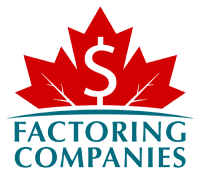Invoice Factoring for Food Manufacturing Companies
The food manufacturing industry is ripe with opportunities for success, just waiting for companies to take a bite out of the potential. The rich rewards span across the industry, whether your company is involved in the manufacturing, distribution, processing, or import/ export sectors.
However, to sample the sweet taste of success in this industry, food manufacturers first need to navigate numerous challenges facing both start-ups and fully established businesses. A shortage of working capital can hold even the longest-standing companies in the industry back from reaching their fullest potential.
Invoice factoring is an accessible financing solution that provides food and beverage manufacturers with immediate access to cash flow. If your business is struggling to grow or meet its financial obligations due to a lack of working capital, invoice factoring for food manufacturing companies may be a solution worth considering.
Food & Beverage Factoring vs. Bank Loans
For companies in the food and beverage industry that are looking for cash flow to fund their growth and day-to-day operations, obtaining financing from a third party is usually the first step. While a traditional bank loan is one of the first-thought-of options, there are some key points that make invoice factoring the better alternative for the food and beverage industry.
So, what is invoice factoring? It is a fast and flexible type of financing that involves a business selling its unpaid invoices to a third party (factoring company) at a discounted rate in exchange for immediate cash flow. Where the application and approval process for a bank loan can take months, the eligibility and approval requirements for invoice factoring are minimal. This means that even small businesses with a limited credit history can access the working capital they need within one to two business days.

Plus, because factoring is not a loan, it does not require collateral, nor does it negatively impact your company’s credit rating or cripple your business with sky-high interest rates and inconvenient repayment terms. You are simply getting an advance on money that is already owed to your business, and the factoring company will usually handle the back-office processes, such as collections, for you. After all of your clients have settled their accounts in full, the factor will reimburse you the remaining invoice balance minus a small factoring fee.
Top Financial Challenges in the Food Manufacturing Industry
The food manufacturing industry has its own set of financial challenges, including fluctuating commodity prices, tight profit margins, and the need for large amounts of working capital. Invoice factoring can help alleviate some of these challenges by providing quick access to cash flow, allowing businesses to purchase raw materials, take on new orders, and meet payroll and other expenses. Some of the most prevalent financial challenges in the food manufacturing industry include:
Without enough capital to prepare for and combat these issues, you cannot hope to run a successful business in the food and beverage industry. Invoice factoring will free up the money tied in your accounts receivables so that instead of waiting 30, 60, or 90 days for your customers to pay, you have the money to operate and improve your business when you need it.
How to Run a Successful Food Manufacturing Company
If you want to run a successful food manufacturing company, you have several key factors to consider, on top of finding the right financing options. These include having a clear business plan, maintaining strict quality control measures, building strong relationships with suppliers and customers, and staying up to date with industry regulations and trends. The top tips for running a successful business in the food manufacturing industry are:
Enhancing Financial Flexibility with Invoice Factoring for the Food and Beverage Sector
In the food and beverage industry, maintaining a steady cash flow and accessing necessary working capital are crucial for businesses aiming to thrive and expand. Invoice factoring emerges as a pivotal financing solution, especially tailored for food manufacturers and beverage companies grappling with the delay of payment terms extending up to 90 days. This innovative funding option converts unpaid invoices into immediate cash, enabling companies to not only meet payroll and supplier demands but also to invest in growth opportunities without the burden of long application processes or the need for extensive credit history checks. Unlike traditional financing options such as bank loans or lines of credit, invoice factoring services offer a seamless, quick, and efficient way to enhance business financing. By choosing a reputable factoring service that understands the unique challenges of the food and beverage sector, companies can enjoy the benefits of improved cash flow management, faster access to working capital, and the strategic advantage to cover operating costs and expand business operations. Factoring for food and beverage not only supports business growth by providing cash advances against outstanding receivables but also helps in managing receivables factoring and accelerates cash flow, ensuring businesses can navigate through cash flow issues and capitalize on market opportunities promptly.
Financing Options for Food Manufacturing Companies
In addition to invoice factoring, food manufacturing companies have several other financing options to consider. These include traditional bank loans, equipment financing, lines of credit, and business credit cards. It’s important to carefully compare the terms and fees of each option to determine the best fit for your business.
If you’re a food manufacturing company interested in invoice factoring, it’s important to work with a reputable and experienced provider. They can help you understand the process and determine if invoice factoring is the right fit for your business.
Browse our Factoring Guide to find out more about what you can expect from invoice factoring services in Canada. You can also request a quote through Factoring Companies Canada for help finding the best industry-specific factoring company to help you grow your business.
Get an instant factoring estimate
Factoring results estimation is based on the total dollar value of your invoices.
The actual rates may differ.
CLAIM YOUR FREE FACTORING QUOTE TODAY!
PREFER TO TALK?
You can reach us at
1-866-477-1778
What People Say About Our Factoring Partners
“Very helpful and welcoming from the beginning to present. Outstanding TEAM!!!!”
“Everyone I talk with is very knowledgeable and patient in helping get the information needed to improve my Business! Thank you!”
“Good customer service, a good partner for your business to grow!”
“I am more knowledgeable about my business and have more help now than I could have ever imagined. Great experience !!”
“I’m very happy with the service I’ve received from beginning to end.”
“The whole staff is very friendly knowledgeable, helpful, and go to extra mile to make sure you accomplish all your goals.”
Get an instant factoring estimate
Factoring results estimation is based on the total dollar value of your invoices.
The actual rates may differ.
CLAIM YOUR FREE FACTORING QUOTE TODAY!
PREFER TO TALK? You can reach us at 1-866-477-1778
As Seen In






Our Partners Belong To




